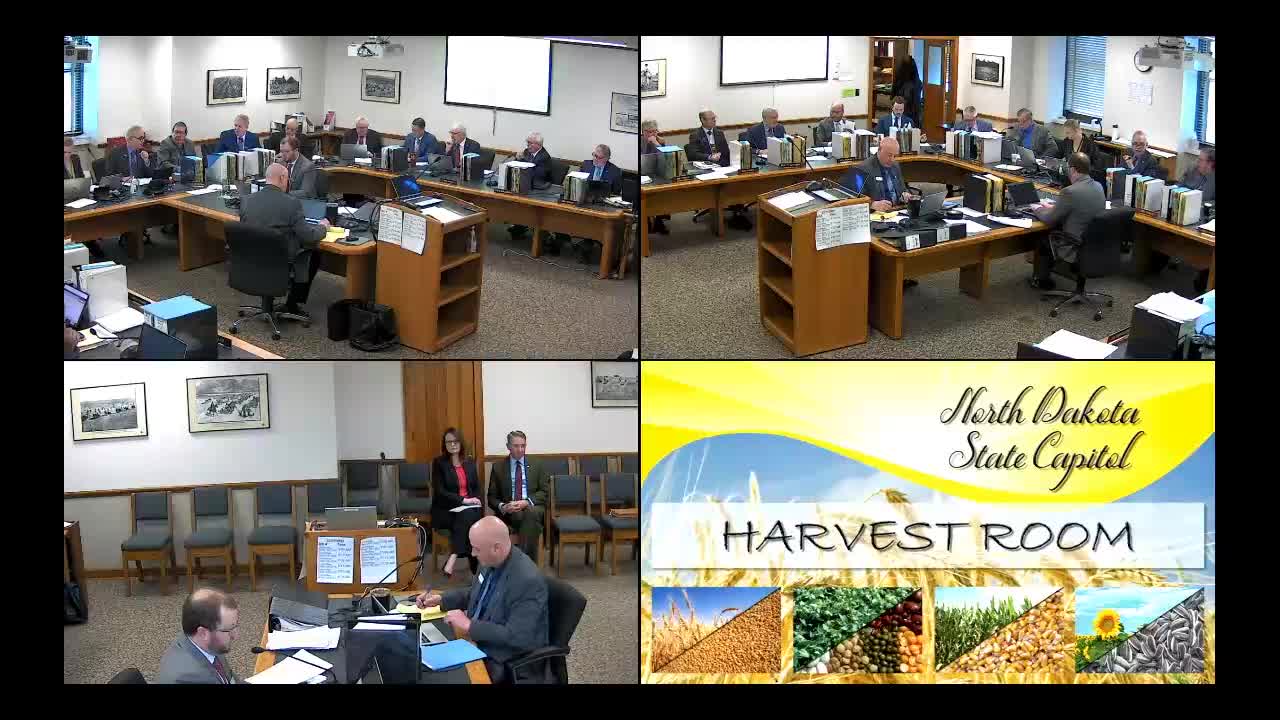Appropriations committee advances corrections budget with added transition funding, facilities planning and victim services boost
Get AI-powered insights, summaries, and transcripts
Subscribe
Summary
Lawmakers advanced the Department of Corrections and Rehabilitation budget (Senate Bill 20‑15) as amended, adding FTEs, funding for new and temporary facilities, IT modernization, deferred maintenance, and a one‑time increase to the Victims of Crime Grant Fund.
The Appropriations Committee approved a due pass as amended for Senate Bill 20‑15, the Department of Corrections and Rehabilitation (DOCR) budget, after adopting a multi‑section amendment that adjusts staffing, capital planning and program funding.
Senator Cleary, who presented the amendment, said the changes include conversions of temporary employees to permanent FTEs; 26 FTEs to staff the Heart River Correctional Center (HRCC) as it comes online; seven FTEs for a temporary 88‑bed unit at the Missouri River Correctional Center (MRCC); two FTEs for pretrial services (the governor requested three); and a 10‑FTE placeholder for county and regional correctional centers tied to ongoing Grand Forks discussions. "We thought putting 10 in there, and then they can come back if there's an agreement and ask for the appropriate amount of FTEs," Cleary said.
The amendment included large one‑time items: about $35.6 million in special funds and a small general fund amount to complete HRCC, $15 million for deferred maintenance and extraordinary repairs, $11.113 million for IT and software modernization, $1.5 million for a Northwest regional reentry/transition center in Minot, and $17.5 million estimated for payments to county and regional jails for overflow housing. The committee also recommended eliminating parole supervision fees because of low collection rates.
During the debate, Senator Mather offered an amendment to add $2 million from the Special Infrastructure Fund (SIF) to the Victims of Crime Grant Fund, raising the DOCR‑administered allocation from $5 million to $7 million to replace declining federal victim‑services grants; that amendment passed on a roll call. "These are funds that DOCR acts as the administrator for going out to different organizations, nonprofits that help with services for victims of crime," the bill presenter said.
Lawmakers discussed a placeholder $3 million for potential contracting with a Grand Forks facility and a broader proposal to shift a larger higher‑education appropriation to corrections; that floor amendment was withdrawn after extended debate and failed attempts to pass larger appropriations. Committee members required quarterly reports to Legislative Management on MRCC planning and added language for a study of use of transition facilities and parole at a sponsor's request.
The committee adopted the amendment package and passed the bill as amended. The amendment and bill together reflect a combination of one‑time construction and renovation funding, operating increases (payroll, inmate wages, contract inflationary adjustments), IT modernization, and programmatic changes intended to address bed shortages and reentry services.
